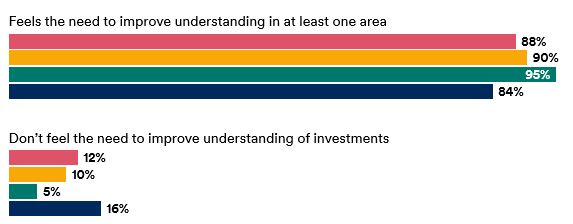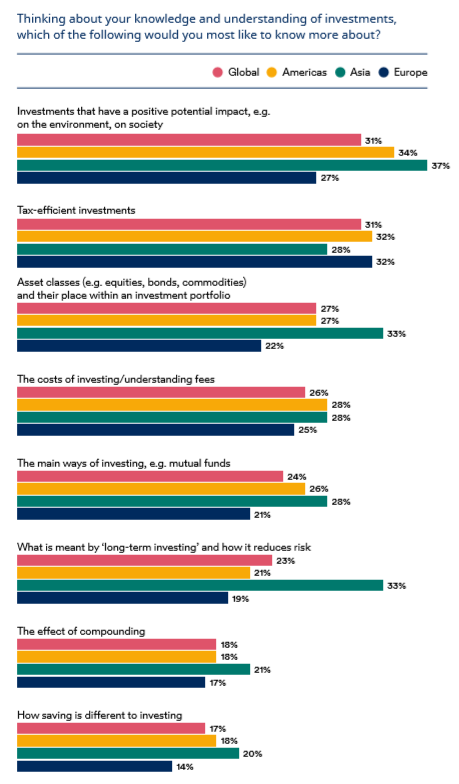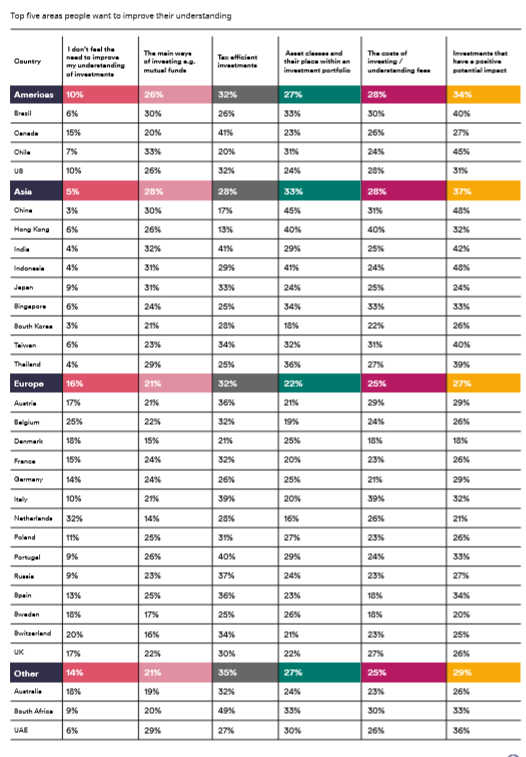Although the results of financial literacy studies in the world are not bad, more than 80% of people continue to say they don’t know and want to know more about how they should invest
Having financial literacy is very different from knowing how to invest – 88% of people say they don’t know how to invest and want to know more about how to do it
In a recent post we saw that according to the latest study on financial literacy in OECD countries, the results obtained vary by 50% and 65%, Portugal ranks slightly above average, and the main difficulties are on the field of concepts of compounding income and diversification, low savings rates, lack of setting of objectives and long-term planning and lack of information to decide on investments.
Having financial literacy is very different from knowing how to invest – 88% of people say they don’t know how to invest and want to know more to do it
According to a study by Schroders in 2017 in which 22,000 people were surveyed worldwide, 88% do not know and want to know more about how to invest in at least one area:

Source: Global Investor Survey 2017, Schroders
People feel they have many knowledge deficiencies on simple and fundamental issues such as what are: asset classes, fees and other costs, ways of investing such as mutual funds, the meaning of long-term investment and how it reduces risk, compounding effect, and differences between savings and investments
People around the world feel the need and want to increase knowledge in areas that are very basic and varied:

People lack knowledge in matters that have taken more recent attention such as responsible investments and tax efficiency, but also in many basic and fundamental aspects of personal investments, such as asset classes, fees and other costs of investments, ways of investing such as investment funds, the meaning of long-term investment and how it reduces risk, the effect of compounding and what are the differences between savings and investments.
All these topics will be widely addressed and developed in the various posts we publish on this blog.
There are no major differences in terms of the main knowledge deficiencies to invest at the level of different countries:




















